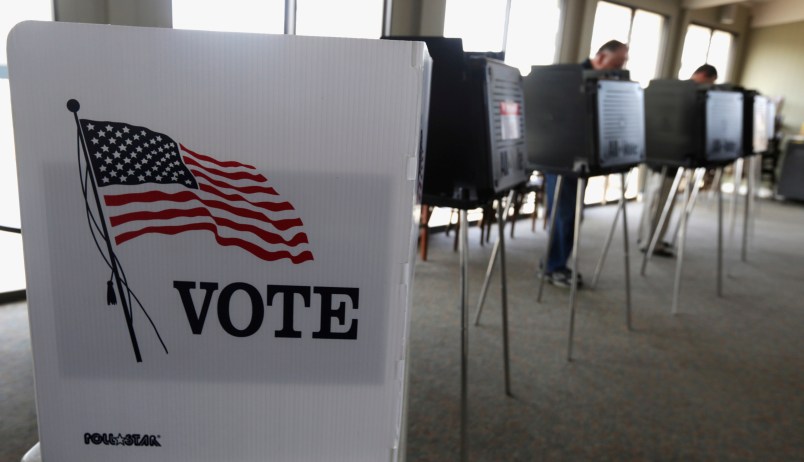MADISON, Wis. (AP) — A federal judge considering a challenge to Wisconsin’s voter ID law ripped state officials Wednesday over inadequate training for Division of Motor Vehicles workers after some employees recently gave prospective voters erroneous information about obtaining alternative credentials to cast a ballot.
Liberal advocacy group One Wisconsin Institute asked U.S. District Judge James Peterson to block the entire law, citing a flurry of reported problems at DMV field offices. Despite his criticisms of the credential program, Peterson said at the conclusion of a hearing that he was reluctant to block the mandate.
A federal appellate court has already found the law constitutional, leaving him uncertain whether he even has authority over the law, the judge said. He added that he wants to respect legislators’ decision to adopt the requirement to protect election integrity.
Still, he said he was disappointed state attorneys didn’t abide by an order he issued in July following a nine-day trial on Republican-authored election laws to make the credential program more accessible and user-friendly. He ordered state attorneys and OWI lawyers to return to the courthouse on Thursday to develop new handouts for the public describing the process.
“I’m very disappointed to see that the state really did nothing in response to my order,” Peterson said. “… You’re at the mercy of the DMV and its staff wasn’t trained well enough to guide people through it.”
Republicans passed a law in 2011 requiring Wisconsin voters to provide government-approved photo identification at the polls. The GOP said the mandate would reduce fraud, even though no evidence of widespread voter impersonation exists.
People who have underlying documentation such as birth certificates or Social Security cards can obtain a free ID card from the state. Those who lack the documentation can receive a receipt allowing them to cast a ballot. The receipts are supposed to arrive by mail within six days.
Peterson ruled in July that the credentialing process was a “wretched failure” because it still left black and Hispanic citizens unable to obtain IDs. He ordered the state to quickly issue credentials valid for voting to anyone who applies for the credentials without an undue burden. Media reports late last month showed some DMV workers are still erroneously told prospective voters they need those documents to get the receipt and that it could take six to eight weeks to process.
DMV Administrator Kristina Boardman testified during the hearing that the agency has stepped up training for staffers since the reports were published. Peterson acknowledged that training has “vastly improved” but said changes should have been made far earlier and information about the process remains “spotty, erratic and so uncertain.”
“There hasn’t been any real outreach on the … process,” the judge said. “Certainly after this court order there should have been (intense) training.”
The hearing on the voter ID law came as a state elections official reiterated that absentee ballots lacking a witness’ name and address wouldn’t be counted. The requirement is part of a new state law, which could lead to thousands of votes being tossed.
“The staff continues to believe the current guidance on the issue strikes the appropriate balance,” Elections Commission administrator Mike Haas said in a memo Wednesday.
A more strict reading of the law, requiring additional information such as a zip code, state and apartment number, is defensible but “seemed overly harsh in practice,” Haas said.
___
Associated Press writer Scott Bauer contributed to this report.
Copyright 2016 The Associated Press. All rights reserved. This material may not be published, broadcast, rewritten or redistributed.







What do you expect when, as a state, you’re stupid enough to elect Scotty Walker?